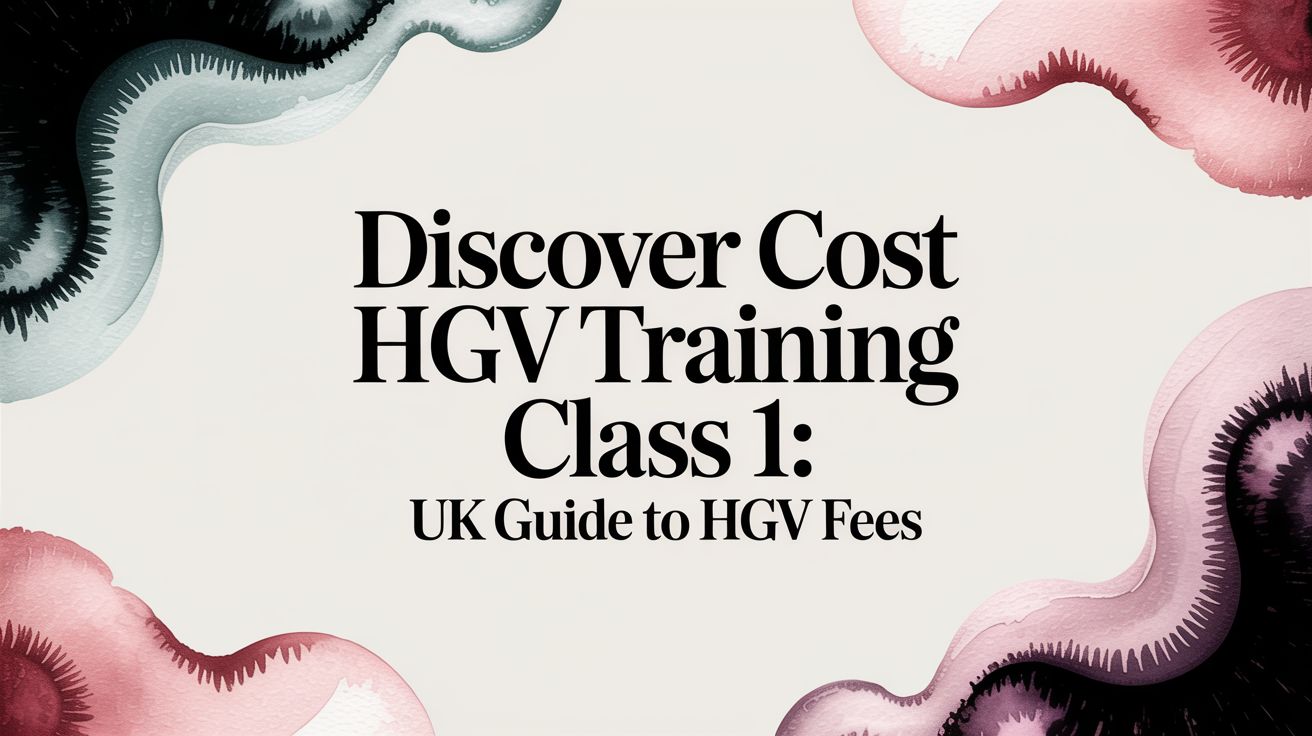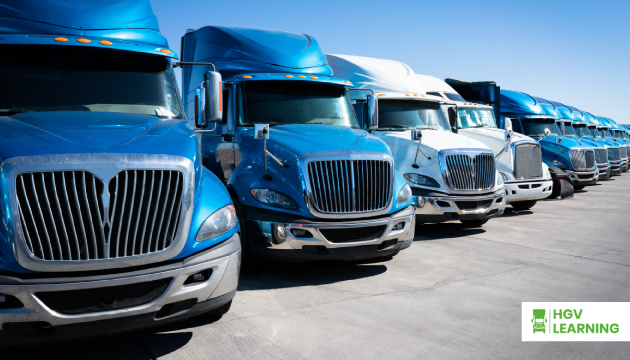Related Articles

09/02/2026
How to Find Lorry Driver Jobs Near Me: A Practical UK Guide


Becoming a lorry driver can open up a world of career opportunities, but the first step is obtaining the right licence. A lorry licence is essential for anyone looking to drive heavy goods vehicles (HGVs) legally in the UK. The process may seem complex, but it’s manageable when broken down into clear steps. This guide will take you through everything you need to know about getting a lorry licence, including the requirements, costs, and benefits.
A lorry licence is a legal certification that permits you to drive heavy goods vehicles over 3.5 tonnes. It is vital for anyone wanting to operate these vehicles professionally or transport goods as part of their job. Depending on the type of lorry you want to drive, there are three main categories of lorry licences to consider.
The Category C1 licence allows you to drive smaller lorries weighing between 3.5 and 7.5 tonnes, often used for local delivery work. A Category C licence, on the other hand, covers larger vehicles over 7.5 tonnes and is the most common licence for professional lorry drivers. Finally, the Category C+E licence lets you drive articulated lorries with trailers, enabling you to transport even larger loads.
Choosing the right licence depends on your career goals and the type of vehicle you plan to drive.
The first step in the process is ensuring you meet the eligibility criteria. You must be at least 18 years old for most lorry licences, although certain exceptions may apply. Additionally, you’ll need a full car driving licence (Category B) and must pass a medical examination to confirm your fitness to drive an HGV. The medical exam is usually completed with a GP or approved doctor, who fills out a DVSA D4 form.
Once you’ve confirmed your eligibility, the next step is to apply for a provisional lorry licence. This involves completing the DVLA D2 application form, along with submitting the D4 medical form signed by your doctor. Both forms are available online or at post offices. After submission, your provisional licence should arrive within three weeks, allowing you to begin your training.
To become a professional lorry driver, you must also complete the Driver Certificate of Professional Competence (CPC). The CPC qualification ensures you meet industry standards for safety and professionalism. It consists of four parts:
Passing all four modules is essential unless you qualify for specific exemptions.
While it is possible to self-learn, professional HGV training is highly recommended to prepare for the practical tests. A certified training provider can guide you through essential driving techniques, vehicle safety, and road awareness. The training typically includes hands-on sessions in an HGV, helping you build confidence behind the wheel. Costs can vary depending on the provider, so it’s worth researching options in your area.
The final step is passing the practical driving test. This test evaluates your ability to operate an HGV safely, including manoeuvring, road safety, and compliance with traffic laws. It also includes assessments for reversing and coupling/uncoupling trailers for certain licences. With proper preparation and practice, you’ll be ready to succeed.
The cost of obtaining a lorry licence can vary based on factors like training providers, test fees, and additional expenses. On average, you can expect to pay between £1,500 and £3,000 for the entire process. This includes medical examination fees, provisional licence application, Driver CPC tests, and professional training.
For those concerned about costs, financial support may be available through government schemes or employer sponsorships. Many logistics companies offer training packages for new drivers in exchange for a commitment to work for them after qualification.
Getting a lorry licence comes with its challenges. The process can be time-consuming, as it requires completing multiple steps, including medical exams, training, and tests. Financial costs can also be a concern for some individuals, although the potential return on investment in terms of career opportunities makes it worthwhile. Additionally, passing the medical examination may be a hurdle for drivers with certain health conditions. Proper planning and support can help you navigate these obstacles effectively.
A lorry licence can unlock a range of career opportunities in the logistics and transportation industry. With the increasing demand for HGV drivers across the UK, licensed drivers enjoy job security and competitive salaries. The profession also offers flexibility, with opportunities to work locally or travel long distances. Beyond the practical benefits, many drivers appreciate the independence and variety that come with life on the road.
The minimum age is 18, though specific licences or driving situations may have additional requirements.
The process typically takes 8 to 12 weeks, depending on how quickly you complete the required steps.
Yes, the CPC qualification is mandatory for professional drivers, with some exemptions available in specific circumstances.
Lorry licences require periodic renewal, with medical checks every five years for drivers over 45.
Obtaining a lorry licence is a multi-step process, but each stage brings you closer to a rewarding career in the logistics industry. From ensuring your eligibility and applying for a provisional licence to completing training and passing the necessary tests, every step is essential for building your skills and confidence. If you’re ready to start your journey, reach out to HGV Learning for expert guidance and training tailored to your needs. Begin today, and take the first step towards a thriving career in lorry driving.

09/02/2026

Complete the form below and we’ll contact you asap.

